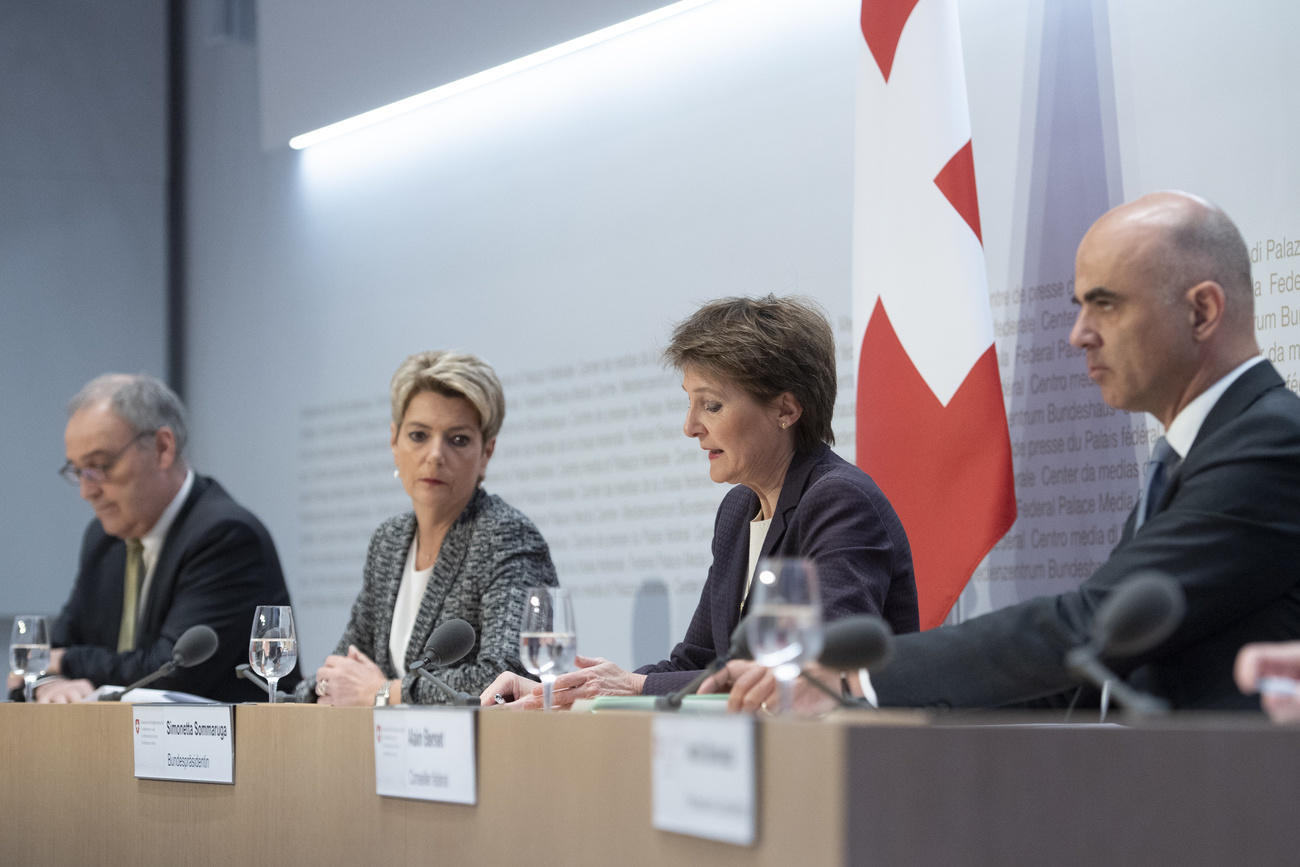Switzerland announces plan to lift coronavirus lockdown

Switzerland will start easing its coronavirus lockdown from April 27, allowing businesses like hairdressers and garden centres to re-open their doors. Children should be able to return to compulsory schooling from May 11.
From June 8, higher education establishments, museums, zoos and libraries will be open once again, providing there is no resurgence of the coronavirus pandemic in the country.
The government announcedExternal link its three-phase plan for restoring Switzerland to normality during a crisis that has claimed more than 1,200 lives.
“This will give us all a perspective for the near future and businesses have time to prepare for a reopening of shops under the rules of social distancing and hygiene precautions,” Swiss president Simonetta Sommaruga told a news conference on Thursday.
Hospitals will also be allowed to conduct non-urgent procedures from April 27 along with a lifting of restrictions of doctors’ and dental practices. Businesses such as hairdressing salons, massage practices, tattoo and cosmetic studios, florists, DIY stores and garden centres may also open again in the first stage of the normalisation plan.
“Restrictions on the range of products that can be sold at grocery stores will be lifted. Shops stocking goods other than essential everyday items in their stores may then resume selling these too,” the government stated.
Measures that currently restrict funeral services to immediate family will also be lifted during this phase.
Cautious approach
Interior Minister Alain Berset said the government chose a cautious Covid-19 exit strategy.
“We want to proceed as swiftly as possible and as slowly as necessary,” he said. “We have to avoid a stop-and-go policy.”
On April 29, the government will make a decision on whether to proceed with stage two of the measures. This involves the re-opening of compulsory education schools on May 11, followed by higher education facilities and other public buildings on June 8.
“Moving from one phase to the next depends on there being no significant increase in Covid-19 cases. Sufficient time has to be allowed between each phase so that the effects can be observed. The criteria are the number of new infections, hospital admissions and deaths, and hospital occupancy rates,” the government stated.
Social distancing
The ban on public and private gatherings of more than five people remains in place, as well as the hygiene recommendations, said Berset.
Preparations are underway for the public transport companies to resume regular services. The government is also considering options for organisers of mass events, notably music festivals, sports competitions as well as political rallies.
Details are expected to be announced at the end of the month.
Restrictions
A first set of restrictions was imposed by the government at the end of February and the measures were gradually tightened.
Schools and non-essential businesses have been forced to close their doors since March 23, a measure that was later extended until April 26.
The government said that high-risk people would not be forced to return to work immediately. Companies have a duty to protect such workers.
Cantons will continue to trace and isolate infected people to prevent further transmissions.
“To this end, an extended testing strategy, a contact tracing concept and an app providing information about contacts with infected persons will be developed.”
Funds
Meanwhile, the government has decided to grant financial benefits for single business ventures as part of a major relief package to prevent unemployment.
The move follows political pressure over the past few weeks. It is expected to cost CHF1.3 billion ($1.4 billion).
An additional CHF20 million have been earmarked for a special Covid-19 research project, Economics Minister Guy Parmelin said.
The government has already pledged CHF42 billion in financial support, including loans and a short-time unemployment benefits.

More
Coronavirus: the situation in Switzerland

In compliance with the JTI standards
More: SWI swissinfo.ch certified by the Journalism Trust Initiative


You can find an overview of ongoing debates with our journalists here. Please join us!
If you want to start a conversation about a topic raised in this article or want to report factual errors, email us at english@swissinfo.ch.